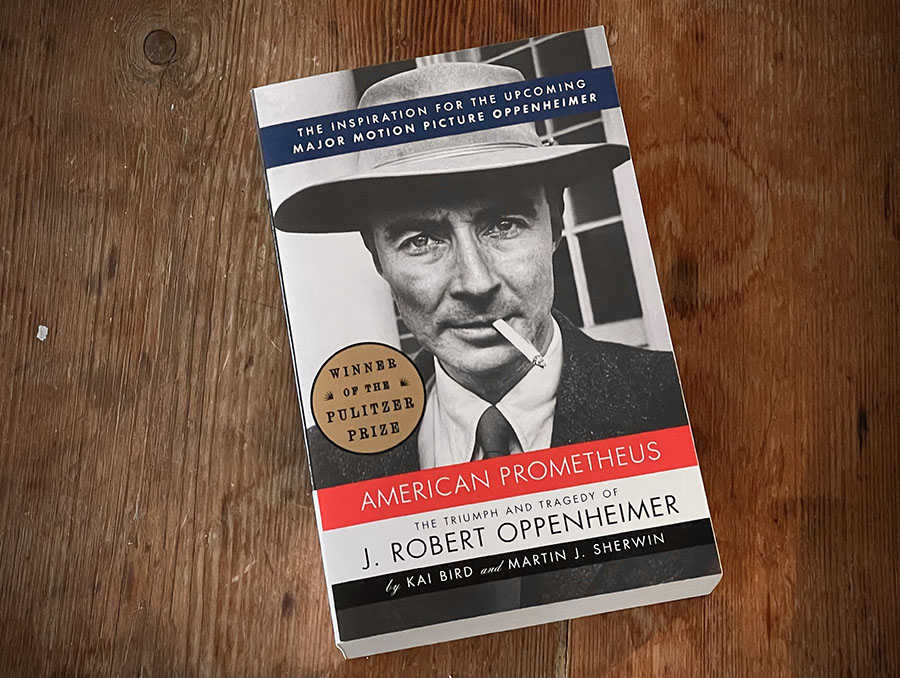J. Robert Oppenheimer, known as one of the fathers of the atomic bomb, held a unique relationship with the ancient Hindu text, the Bhagavad Gita. This relationship underscores his intellectual depth and the complexity of his emotions regarding his work on nuclear weaponry.
Oppenheimer’s Introduction to the Bhagavad Gita
Oppenheimer was introduced to the Bhagavad Gita as a young man during his studies at Harvard. Intrigued by its philosophical depth and the universal themes it contained, he began a lifelong journey of exploring the text, even learning Sanskrit to engage with it more deeply.
Themes of the Bhagavad Gita and Its Relevance to Oppenheimer
He was particularly fascinated by the Bhagavad Gita‘s exploration of duty, action, and morality, themes that would eventually become quite relevant to his role in the Manhattan Project.
Video review of American Prometheus: The Triumph and Tragedy of J. Robert Oppenheimer
The Bhagavad Gita and the Manhattan Project
As the Manhattan Project neared its completion, Oppenheimer found himself in a position not unlike Arjuna’s. He was conflicted about the morality of creating such a destructive weapon, but also recognized the potential necessity of its use in ending World War II. The Bhagavad Gita provided a framework for him to grapple with these dilemmas, as he saw himself carrying out his own duty, despite the possible devastating consequences.
The Trinity Test and the Bhagavad Gita
Oppenheimer’s connection to the Bhagavad Gita was made famously clear in his recollection of the Trinity Test, the first detonation of a nuclear device in July 1945. Upon witnessing the power of the atomic bomb, he quoted a verse from the Bhagavad Gita, saying, “Now I am become Death, the destroyer of worlds.“
The Significance of Oppenheimer’s Relationship with the Bhagavad Gita
This quote, originally spoken by Krishna in the text to demonstrate his divine power, encapsulates Oppenheimer’s sense of responsibility and possibly remorse. It indicates the profound impact that the Bhagavad Gita had on his perception of his work.
Technology, Science and moral dilemmas
Oppenheimer’s relationship with the Bhagavad Gita is a testament to the text’s timeless relevance and the universal nature of its themes. The ancient dialogue between Arjuna and Krishna found a surprising resonance in the context of 20th-century nuclear physics and warfare, providing a moral and philosophical framework for one of the most consequential scientific endeavors in human history.
The intertwined narrative of Oppenheimer’s atomic bomb and the teachings of the Bhagavad Gita continues to serve as a profound reminder of the moral complexities that can arise in the pursuit of scientific and technological advancement. It raises questions about duty, responsibility, and the ethical implications of wielding potentially world-altering power. We are now at the beginning of the era of AI and similar existential questions will face humanity as this groundbreaking technology evolves.
Further Reading on Oppenheimer
Apart from reading the Bhagavad Gita, I do recommend reading American Prometheus: The Triumph and Tragedy of J. Robert Oppenheimer. It gives a detailed account of Oppenheimers life and work. Here is my full review of that book. I enjoyed them both as audiobooks.

American Prometheus: The Triumph and Tragedy of J. Robert Oppenheimer





